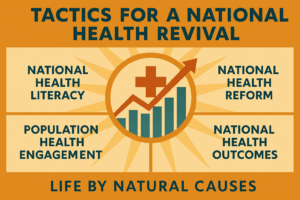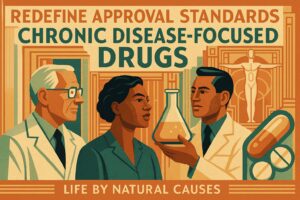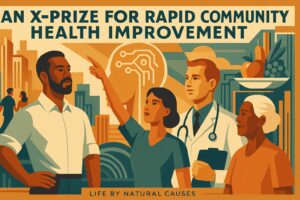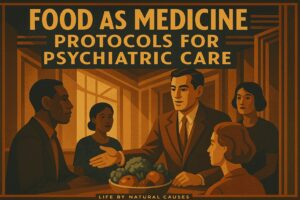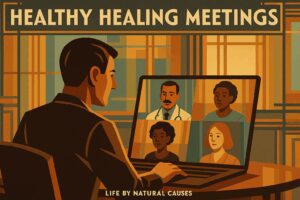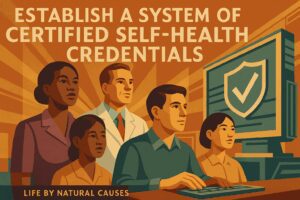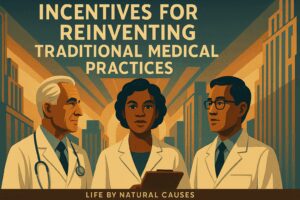In a country where over 60% of adults live with at least one chronic condition, and nutrition is a leading determinant of health, most physicians still receive fewer than 20 hours of nutrition education during their university experience. Is this a systemic healthcare flaw we should continue to ignore?
Read MoreHeart disease, type 2 diabetes, hypertension, and many other leading causes of death and disability respond better to lifestyle changes than to most prescriptions on the market—and the evidence is overwhelming. So, what’s the problem?
Read MoreCurrently, FDA approval for chronic disease medications often relies on short-term symptom-based endpoints without requiring evidence of disease prevention or reversal. Our proposal is to reframe approval standards to prioritize long-term patient outcomes.
Read MoreWhat if HHS inspired a national competition to reverse community chronic disease? Communities would compete not just for bragging rights, but to restore vitality, extend life expectancy, and dramatically reduce the burden of preventable chronic illness.
Read MoreWhat if the first-line treatment for depression wasn’t a prescription, but a health evaluation and a meal plan? The U.S. is on the brink of a psychiatric health crisis, and it’s time we use every tool available—especially the fork.
Read MoreThe average American sees 9 drug ads a day, with over $8 billion spent annually by pharmaceutical companies to market chronic disease medications that often manage rather than reverse conditions. What if pharmaceutical ads partially funded alternative, effective approaches to treating chronic disease?
Read MoreIn a future reshaped by AI, where traditional jobs are increasingly automated, the value of staying healthy is no longer just personal—it is becoming economic. Imagine a national program where individuals can earn supplemental income and receive insurance discounts by achieving and maintaining verifiable health improvements.
Read MoreAmerica’s chronic disease epidemic is isolating millions. A diagnosis often marks the beginning of a long and lonely journey. But what if recovery didn’t have to happen alone between visits? What if we treated chronic disease recovery like we treat addiction recovery?
Read MoreWhat if becoming healthier was not only encouraged but certifiable…beginning with the very people responsible for shaping public health?
Read MoreThe U.S. healthcare system is structurally misaligned with the needs of the 21st century. Chronic diseases consume over 80% of healthcare costs, while the system remains optimized for acute care, diagnostics, and pharmaceutical interventions. Proposal: Provide clinics incentives to shift toward preventing and reversing chronic disease through evidence-informed integrative therapies.
Read More- « Previous
- 1
- 2
- 3
- Next »



